Categories
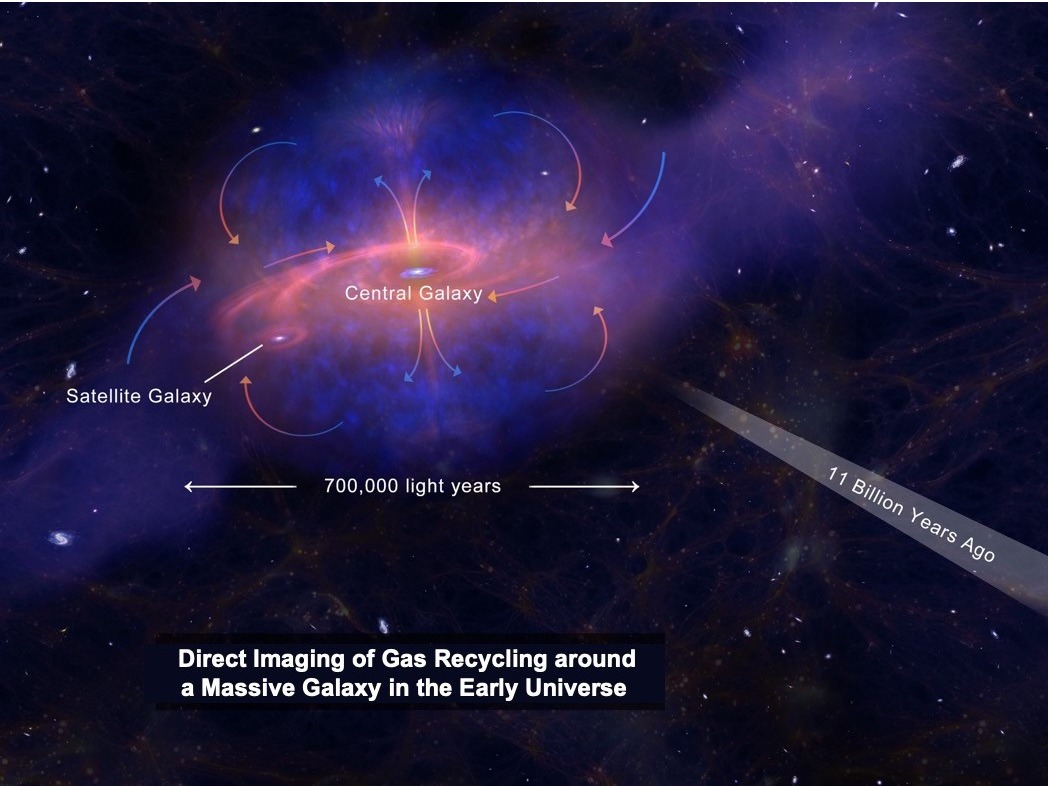
Direct Imaging of Gas Recycling around a Massive Galaxy 11 Billion Years Ago
05 5月 2023Galaxies are the birthplace of most stars and black holes. However, scientists are still debating, how galaxies accrete the fuel to sustain their growth and how they in turn pollute their environment with elements heavier than helium. An international team led by Prof. Zheng Cai at Tsinghua University has now directly observed the neighborhood of a massive galaxy in the early Universe. They fin...
阅读更多...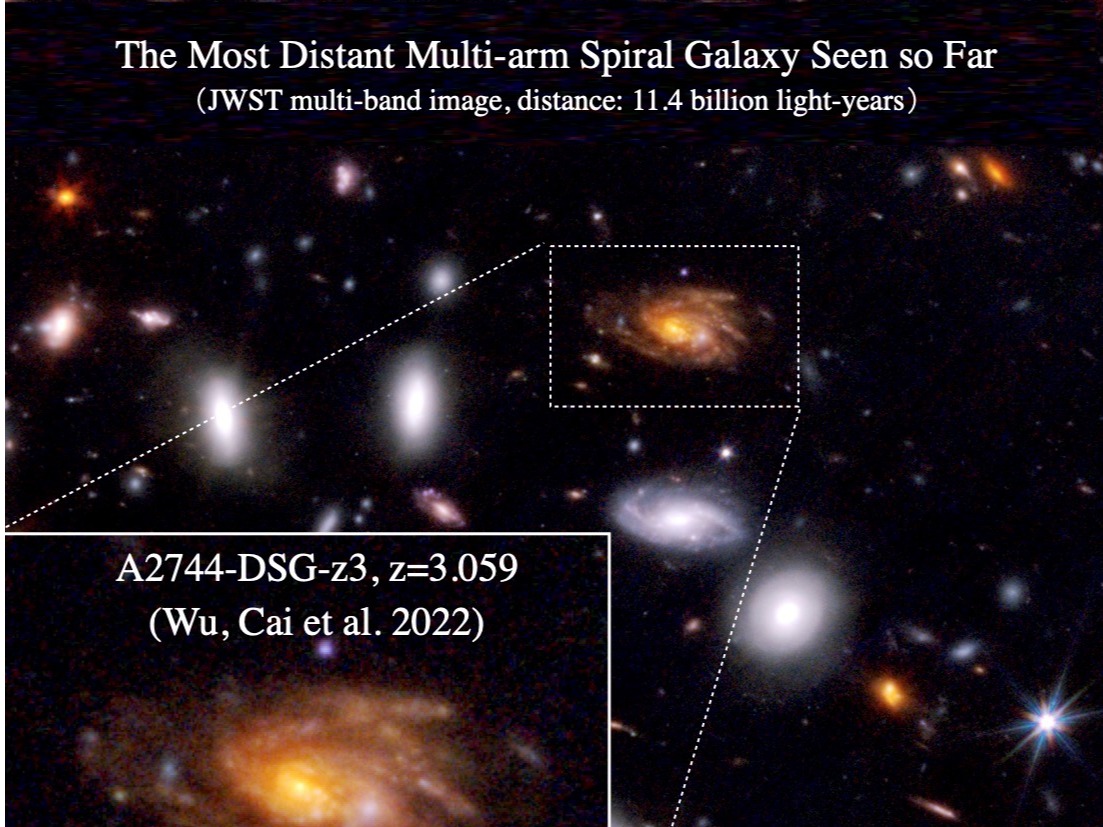
The earliest multi-arm spiral galaxy confirmed
03 1月 2023JWST multi-band-imaging observations of A2744-DSG-z3, the most distant spiral galaxy that has been seen so far. Image credit: Cai, Wu, Sun, Tsinghua University and The University of Arizona.Spiral-like structures are widely regarded to be caused by gravitational instability, while different spirals are formed in different ways. When and how these spirals form is still a mystery. Fortunately, re...
阅读更多...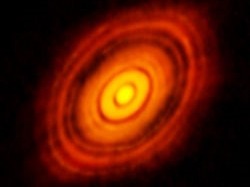
Chickens or eggs? ALMA rings as planet factories
12 12月 2022Protoplanetary disks, the cradle of planets, contain a large amount of building blocks for planet formation -- (sub)millimeter-size solid particles -- pebbles. Yet, how, when, and where planets start to form is an outstanding question. In the past decade, through the Atacama Large Millimeter/submillimeter Array (ALMA) in Chile, it was revealed that a large number of protoplanetary disks are rin...
阅读更多...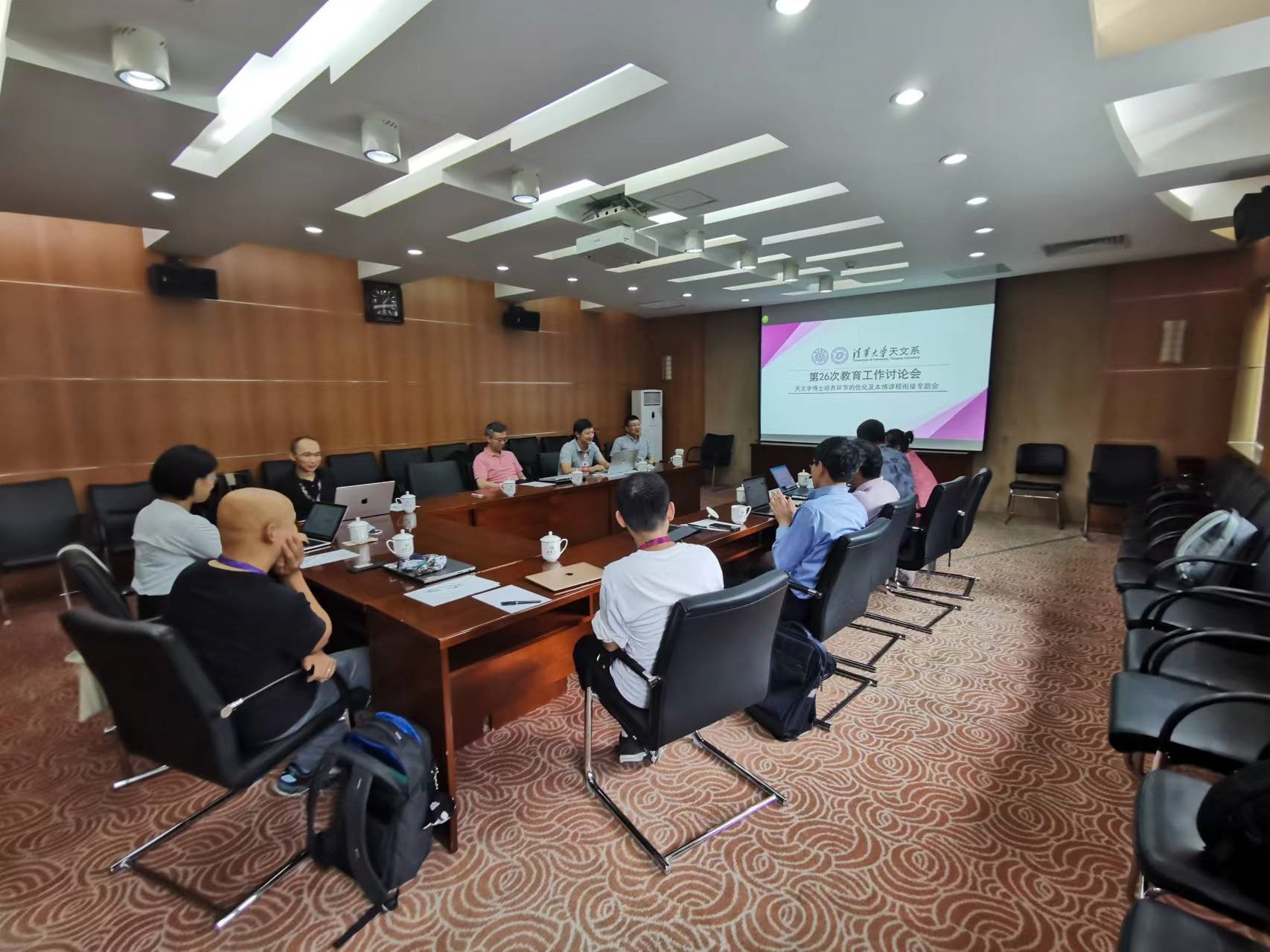
The 26th Education Forum experience sharing meeting of DOA held
06 9月 2022On September 3rd, the 26th Education Forum experience sharing meeting was held on campus, and 11 faculty members attended the meeting. Prof. Yi Mao first conveyed the spirit of the 26th Tsinghua University Educational Work Symposium at the meeting and discussed relevant issues with the faculty. Afterwards, faculty members shared their insights and experiences in teaching and supervision of PhD ...
阅读更多...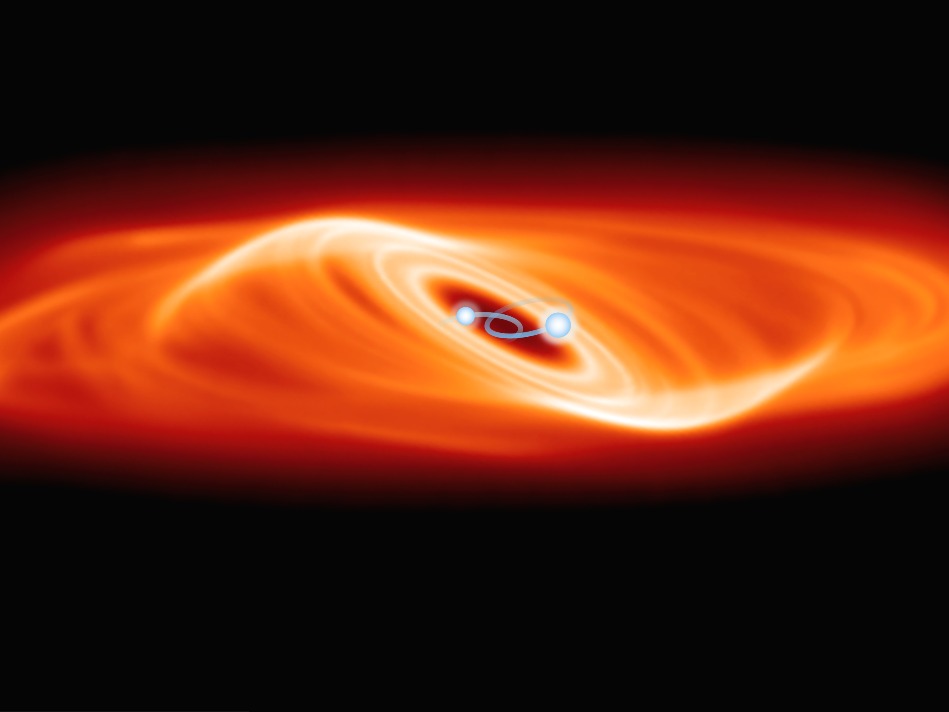
Amateur and professional astronomers team up to identify rare binary star systems
05 7月 2022An illustration showing a binary star circled by a warped circumbinary disk. Once every orbit, one of the stars in the binary passes behind the disk and its light is blocked from our view. Image credit: Poon, Zhu, Zanazzi, University of Toronto; Sahl Rowther et al., Warwick University.An international team led by Tsinghua astronomer Prof. Wei Zhu has identified only the second and third example...
阅读更多...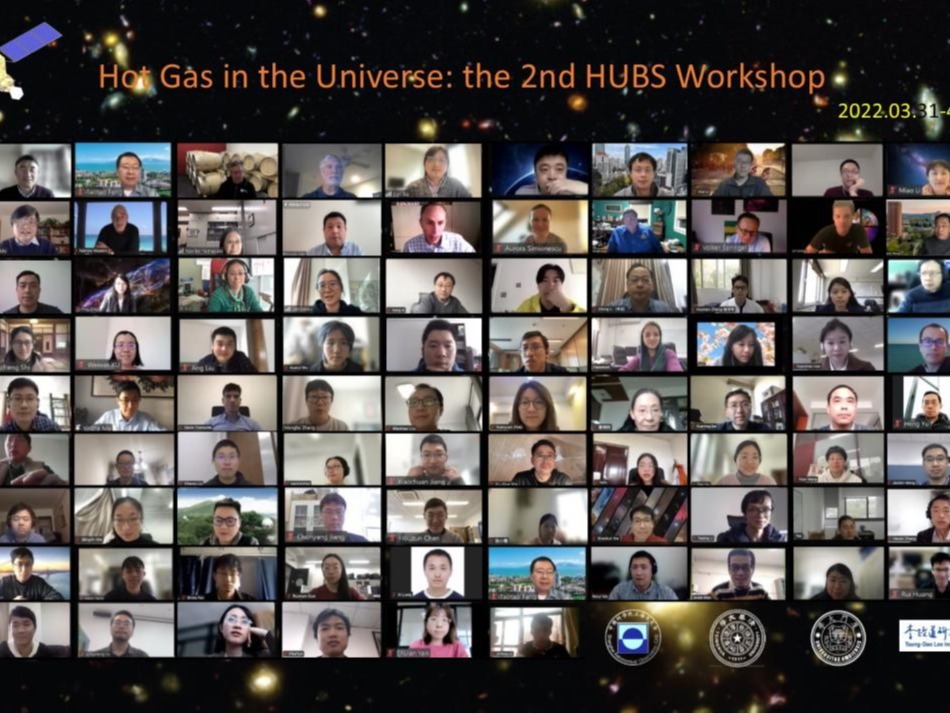
Hot Gas in the Universe:The 2nd HUBS Workshop Was Held Successfully
14 4月 2022Hot Gas in the Universe:The 2nd HUBS Workshop Was Held Successfully14 APR 2022The 2nd “Hot Universe Baryon Surveyor (HUBS)” Workshop was held online from March 31 to April 2, 2022. The workshop was jointly hosted by Tsinghua University, Shanghai Astronomical Observatory, Xiamen University, and the Tsung-Dao Lee Institute, and was organized by Xiamen UniversityThe workshop was originally sche...
阅读更多...


